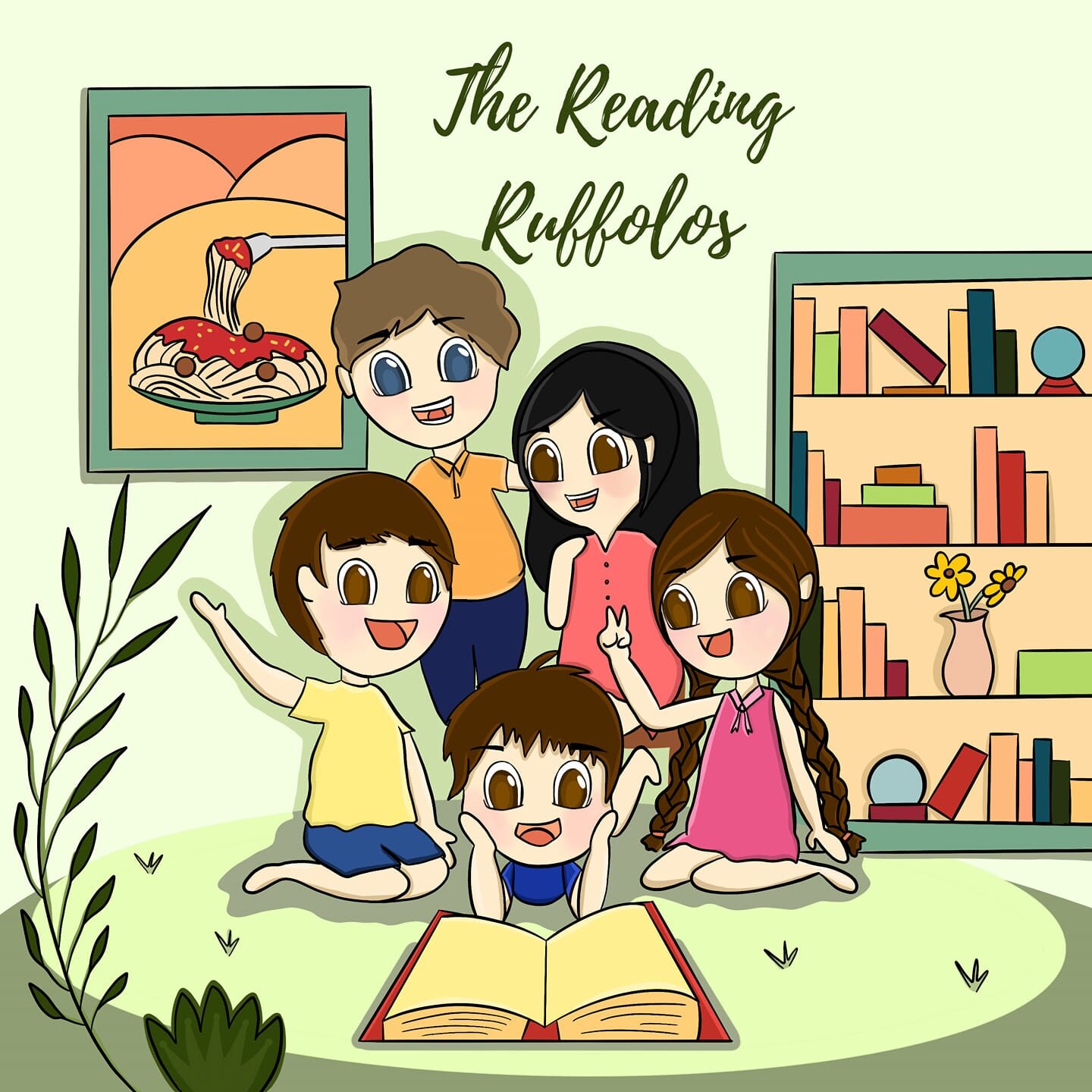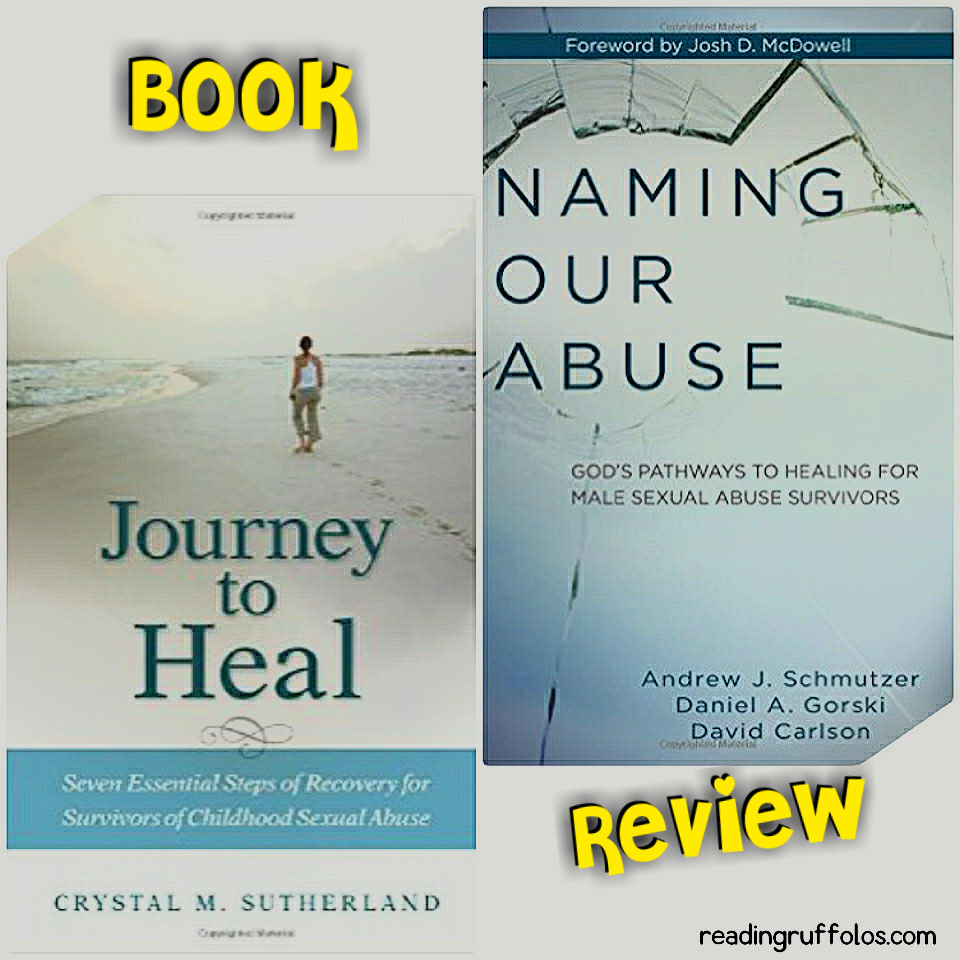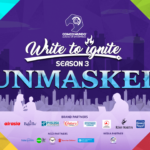I was hesitant to sign up for the book tours of Journey to Heal: Seven Essential Steps of Recovery for Survivors of Childhood Sexual Abuse (Crystal M. Sutherland) and Naming Our Abuse: God’s Pathways to Healing for Male Sexual Abuse Survivors (Andrew Schmutzer, Daniel Gorski, and David Carlson).
For one, it wasn’t fiction.
These are two books that discuss a sensitive topic: sexual abuse, a topic that I am not in the position to talk about. I have friends and I know people who are victims of some people’s beastly acts. When this topic was brought on the table, I usually don’t know how to react. I didn’t know what to say or do. Am I supposed to say comforting words? What words exactly? Should I hug them? Hold their hands and say “It’s going to be okay”?
But it’s not okay.
So, I signed up for the tours.
Two weeks after, I finished reading the two books and I put together a list of five learnings and realizations from these books on sexual abuse.
1. It is not your fault.
Crystal Sutherland was abused as a child by her stepfather. Her mother blamed her for it. The reaction from her own mother made her feel it was her fault. Several therapy sessions and conversations with God later, she realized that what happened is not her fault; that she is not responsible for the violent act. Reading this from a survivor herself, I feel that as a friend to a survivor of sexual abuse, I can be of help by telling her/him that it is not their fault; that they are not to be blamed for the actions committed by their perpetrators.
2. Writing it is important.
The triumvirate of Andrew Schmutzer, Daniel Gorski, and David Carlson wrote Naming Our Abuse. All three were abused. Yes, they’re males… this is why this book is rare because readers are given the opportunity to “meet” real men who are in the unique position to talk about male sexual abuse. Like Sutherland’s Journey to Heal, Naming Our Abuse talked about the importance of journaling exercises, of writing things down even going back to that particular point in time of the abusive act. It is painful to go back down memory lane because those scenes are not pretty but it is comforting to read about people who did it and came out victorious.
3. A strong support system is vital.
Reaching out to fellow survivors helps with recovery. These are people who understand what you are going through. There are people who may not find a support group with similar experiences but as friends of sexual abuse survivors, it is our responsibility to respect their stories and not spread it like showbiz news. Coming out and sharing sexual abuse stories takes so much courage.
4. Healing is a process.
I personally like the metaphor of a car accident in Naming Our Abuse. A car accident, the authors wrote, illustrates a four-step model: the wreck, the accident report, rehabilitation, and driving again. A person does not bounce from one step to the other in a matter of seconds. Healing takes time. It is a process of acknowledging that you’re in a wreck, filing the accident report (see journaling exercises), rehabilitation (reaching out to support groups, attending therapy sessions), and then having the courage to drive again and face the challenges brought about by living one’s lifein this mortal world.
5. Healing is possible.
Here are two books whose authors are sexual abuse survivors themselves. I wish they haven’t gone through what happened to them because they’re inhuman, horrible, and tragic. But look at what these four people do, they did not just pick up the shattered pieces and put them back together; they made sure to reach out to other survivors to remind them that no matter how difficult the journaling exercises are, no matter how challenging it is to tell your story, and no matter how hard it is to tell yourselves that it is not your fault, the proverbial light at the end of the dark tunnel is true. These four people proved it.
This gives so much hope and inspiration to those who are still suffering from the trauma and the guilt; that no matter how painful it is, there is an end to it.
These two books are some of the most emotional books I’ve read in the past six months. It was an emotional read because I kept on thinking about the men and women, girls and boys, who were in these situations. I felt angry and helpless. How many people out there are being abused at 11:58 P.M. on May 30, 2016, the very same time I’m writing this post?
It’s chilling.
If you are a sexual abuse survivor, these books might help you in your journey to name and acknowledge your abuse and then start your journey to healing.
If you are a family member or friends of a survivor, read these too. They sure did give me nuggets of wisdom on how to respond to my survivor friends.
Thank you Crystal, Andrew, Daniel, and David! I’m sure it took a lot of courage and prayers to sit down and write your experiences and your respective journeys. You are living testaments that healing is possible when one commits and follows through.




